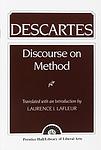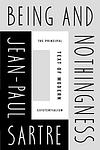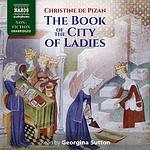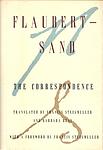The Greatest French, German "Nonfiction" Books of All Time
Click to learn how this list is calculated.
This list represents a comprehensive and trusted collection of the greatest books. Developed through a specialized algorithm, it brings together 300 'best of' book lists to form a definitive guide to the world's most acclaimed books. For those interested in how these books are chosen, additional details can be found on the rankings page.
Genres
Countries
Date Range
Reading Statistics
Click the button below to see how many of these books you've read!
Download
If you're interested in downloading this list as a CSV file for use in a spreadsheet application, you can easily do so by clicking the button below. Please note that to ensure a manageable file size and faster download, the CSV will include details for only the first 500 books.
Download-
1. Essays by Michel de Montaigne
This collection of essays explores a wide range of topics such as solitude, cannibals, the power of the imagination, the education of children, and the nature of friendship. The author employs a unique and personal approach to philosophy, using anecdotes and personal reflections to illustrate his points. The essays provide a profound insight into human nature and condition, and are considered a significant contribution to both literature and philosophy.
-
2. The Second Sex by Simone de Beauvoir
This influential work explores the treatment and perception of women throughout history, arguing that women have been repressed and defined only in relation to men. The author presents a detailed analysis of women's roles in society, family, work, and in the creation of their own identities. She discusses the concept of 'the other' and how this has been used to suppress women, while also examining the biological, psychological, and societal impacts of this oppression. The book is a seminal text in feminist theory, challenging traditional notions of femininity and calling for equality and freedom for women.
-
3. Communist Manifesto by Karl Marx, Friedrich Engels
This influential political pamphlet advocates for the abolition of private property, the rights of the proletariat, and the eventual establishment of a classless society. The authors argue that all of history is a record of class struggle, culminating in the conflict between the bourgeoisie, who control the means of production, and the proletariat, who provide the labor. They predict that this struggle will result in a revolution, leading to a society where property and wealth are communally controlled.
-
4. Democracy in America by Alexis de Tocqueville
This influential book offers an in-depth analysis of the strengths and weaknesses of 19th century American democracy. The author, a French political thinker, provides a detailed examination of the democratic process and its impact on society, politics, and the economy. The work highlights the importance of civil society, local institutions, and the spirit of equality in ensuring the stability of democracy. It also delves into the dangers of majority tyranny, the potential for democratic despotism, and the critical role of religion and morality in sustaining a democratic nation.
-
5. Thus Spake Zarathustra by Friedrich Nietzsche
This philosophical novel explores the idea of the Übermensch, or "Overman," a superior human being who has achieved self-mastery and created personal meaning in life. The protagonist, Zarathustra, descends from his solitary life in the mountains to share his wisdom with humanity. Through a series of speeches and encounters, he challenges traditional beliefs about good, evil, truth, and religion, and advocates for the transcendence of man into a higher form of existence. The book is noted for its critique of morality, its poetic and often cryptic language, and its exploration of complex philosophical concepts.
-
6. The Confessions of Jean-Jacques Rousseau by Jean-Jacques Rousseau
"The Confessions of Jean-Jacques Rousseau" is an autobiographical work by a prominent philosopher of the Enlightenment era, who candidly shares his life story, from his humble beginnings in Geneva to his later years in exile. The book delves into his personal struggles, his intellectual journey, and his relationships, all while exploring his philosophical ideas on education, politics, and morality. The author's introspective narrative provides a unique perspective on his life and times, making it a seminal work in the history of autobiography.
-
7. Pensées by Blaise Pascal
"Pensées" is a collection of philosophical and theological thoughts and ideas by a renowned French mathematician and physicist. The book delves into various aspects of human existence, exploring the nature of faith, reason, and the human condition. It also presents arguments for the existence of God, including the famous wager argument. The book is known for its profound insights into the human experience and its exploration of the complexities of belief and doubt.
-
8. Relativity by Albert Einstein
This book is a comprehensive introduction to the theory of relativity written by the physicist who developed the theory. It covers both the special and general theories of relativity and provides an accessible explanation of the physics involved, including the nature of light, time, and gravity. The book also discusses the philosophical implications of relativity and its impact on our understanding of reality. Written for a general audience, it aims to make complex scientific concepts understandable to non-experts.
-
9. Critique of Pure Reason by Immanuel Kant
This philosophical work delves into the nature and limits of human knowledge, proposing that while our knowledge begins with experience, it doesn't necessarily arise out of experience. The author argues that pure reason itself has the ability to contribute to our knowledge and understanding of the universe. He further explores the concept of metaphysics, asserting that while it is possible, it is also severely limited by the human mind's ability to comprehend it.
-
10. Das Kapital by Karl Marx
This influential work is a comprehensive critique of political economy, exploring the complex nature of capitalism, its production processes, and its societal impact. The book delves into the intricacies of commodities, labor theory of value, surplus value, and exploitation, arguing that capitalism is inherently unstable and prone to periodic crises. It also posits that the capitalist system ultimately leads to the concentration of wealth in fewer hands, causing social inequality and paving the way for its own demise. The book is widely regarded as a foundational text in the development of socialist and communist ideologies.
-
11. The Social Contract by Jean-Jacques Rousseau
"The Social Contract" is a philosophical work that discusses the concepts of sovereignty and the social contract. The author argues that all men are born free, but everywhere they are in chains, suggesting that society and its rules are a form of enslavement. However, he also posits that a social contract, where individuals come together to form a collective or a society, is necessary for the preservation of their freedom. This contract allows for the creation of a sovereign that is made up of the collective and expresses the general will, which is always right and tends towards the public utility.
-
12. The Origins of Totalitarianism by Hannah Arendt
The book explores the roots of totalitarian systems, particularly focusing on Nazi Germany and Stalinist Russia. It delves into the historical, social, and political circumstances that led to the rise of these oppressive regimes, including anti-Semitism, imperialism, and the decline of the nation-state. The author further discusses the nature of power, the role of propaganda, and the manipulation of the masses in these systems, providing a comprehensive analysis of totalitarianism.
-
13. The Myth of Sisyphus by Albert Camus
This book is a philosophical essay that explores the concept of absurdity, and how individuals should respond to life's inherent meaninglessness. It posits that life is essentially absurd due to the conflict between our desire for understanding and the chaotic, indifferent universe. The author argues that the only proper response to this absurdity is to live life to its fullest, embracing and rebelling against the absurdity, rather than resorting to suicide or turning to religion or philosophy for false comfort. The story of Sisyphus, condemned to eternally roll a boulder up a hill only for it to roll back down, is used as a metaphor for the human condition.
-
14. Meditations on First Philosophy by Rene Descartes
"Meditations on First Philosophy" is a philosophical treatise that introduces the concept of radical doubt as a foundational element of knowledge. The book is known for the famous philosophical statement, "I think, therefore I am," which the author uses to establish the existence of the self as a necessary truth. The author also presents arguments for the existence of a benevolent God and the immortality of the soul, while examining the differences between the mind and the body, the nature of reality, and the limits of human understanding.
-
15. Being and Nothingness by Jean Paul Sartre
This philosophical work delves into the concept of existentialism and phenomenology, offering an in-depth analysis of human consciousness and existence. The author argues that we are all essentially free and responsible for our actions, and that we construct our own identities through our actions and interactions with others. The book also explores the idea of 'nothingness' and 'bad faith', suggesting that we often deny our freedom and hide from the responsibility of our actions, leading to a life of inauthenticity.
-
16. The Book of the City of Ladies by Christine De Pizan
"The Book of the City of Ladies" is a classical work in which the author, through allegorical characters, builds an imaginary city for women to illustrate their significant contributions to society. The book is a defense of women, arguing against the popular notion of the time that women were inferior to men. It showcases the author's deep knowledge of the past, referencing numerous notable women from history and mythology, emphasizing their virtues, intelligence, and moral fiber.
-
17. On the Genealogy of Morality by Friedrich Nietzsche
This philosophical work is a critical exploration of the origins and development of moral values. The author challenges conventional notions of good and evil, arguing that they evolved not from any inherent sense of justice, but rather as a means of exerting control over society. He presents a historical analysis of how morality has been used as a tool by the powerful to dominate the weak, and critiques the influence of religion and societal norms on our understanding of morality. The book is a profound examination of the nature of morality, its origins, and its impact on human behavior.
-
18. Mythologies by Roland Barthes
This book is a collection of essays that explore the layers of cultural and societal meanings that are imbued in everyday objects, activities, and phenomena. The author decodes the symbols and signs embedded in things as varied as wrestling, soap detergents, toys, and even the face of Greta Garbo. The book is a pioneering exploration of semiotics, the study of signs and symbols, and it challenges readers to question and understand the cultural connotations and ideologies that are presented as natural or given in our everyday lives.
-
19. Tristes Tropiques by Claude Lévi-Strauss
"Tristes Tropiques" is a blend of autobiography, travel literature, and anthropology by a renowned scholar. The book is a recounting of the author's travels and anthropological work, primarily in Brazil, in the 1930s. It provides a critical and philosophical reflection on his experiences and observations, offering insights into indigenous tribes like the Nambikwara and Tupi-Kawahib, and exploring themes of cultural change, the nature of anthropology, and the author's own disillusionment with Western civilization.
-
20. Words by Jean Paul Sartre
This book is a memoir that explores the author's early life and development as an intellectual. He reflects on his childhood experiences in a non-linear narrative, detailing his relationship with his mother and grandfather, his early education, and his evolving understanding of language and literature. The author also delves into his philosophical ideas, examining the concept of existentialism and the role of the individual in society. The book serves as a profound exploration of the power of words and the impact of childhood experiences on adult life.
-
21. Being and Time by Martin Heidegger
Being and Time is a seminal work that explores the concept of "being" through a detailed analysis of human existence. The book delves into existential and phenomenological thought, examining how humans relate to the world and their own existence. The author argues that people are always "being-in-the-world" and that understanding this fundamental state is crucial to comprehending the broader concept of being. The work also introduces the concept of "Dasein," a term used to describe the specific type of being that humans possess.
-
22. Economy and Society by Max Weber
"Economy and Society" is a comprehensive analysis of the relationship between economy and society, focusing on the role of social actions and their impact on economic systems. The book presents a theoretical framework for understanding how economic and social structures influence each other, including the role of bureaucracy, power, and authority. The author also introduces his famous concept of the "Protestant Ethic", linking the rise of capitalism to certain aspects of Christian beliefs. The book is considered a fundamental text in sociology and economics, providing a deep understanding of social and economic phenomena.
-
23. Eichmann in Jerusalem: A Report on the Banality of Evil by Hannah Arendt
This book is a thought-provoking exploration of the trial of Adolf Eichmann, a major organizer of the Holocaust. The author argues that Eichmann was not a fanatical ideologue, but rather an ordinary individual who simply followed orders and bureaucratic procedures, highlighting the terrifying potential for evil in any system that values obedience over personal responsibility. The concept of the "banality of evil" is introduced, suggesting that horrific acts can be committed by ordinary people under certain conditions.
-
24. The Rings of Saturn by W. G. Sebald
"The Rings of Saturn" is a richly detailed travelogue that follows the narrator's journey along the coast of Suffolk, England. The narrative weaves together history, literature, and personal anecdotes, exploring topics as diverse as the decline of the herring industry, the horrors of colonialism in the Congo, and the life of philosopher Sir Thomas Browne. The book is characterized by its melancholic tone, its digressive style, and its meditative reflections on memory, time, and decay.
-
25. The George Sand-Gustave Flaubert Letters by Gustave Flaubert
This book is a compilation of the personal correspondence between two of the most prominent French literary figures of the 19th century. Their letters offer an intimate look into their lives, thoughts, and the deep friendship they shared. The exchange covers a wide range of topics, including their literary works, their critiques of each other's work, their views on contemporary society, politics, and culture, as well as their personal joys, sorrows, and struggles.
Reading Statistics
Click the button below to see how many of these books you've read!
Download
If you're interested in downloading this list as a CSV file for use in a spreadsheet application, you can easily do so by clicking the button below. Please note that to ensure a manageable file size and faster download, the CSV will include details for only the first 500 books.
Download























